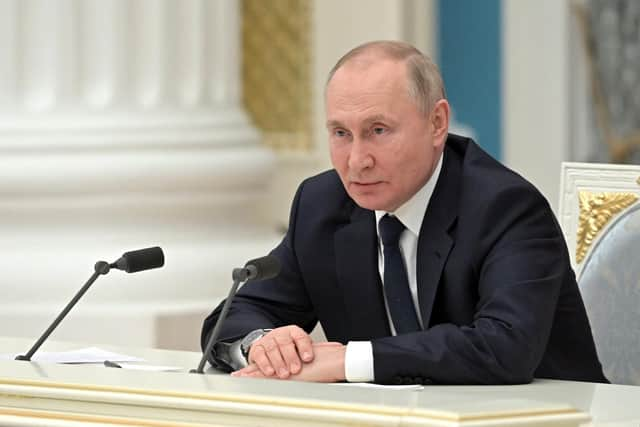New sanctions guidance highlights need for vigilance - Stacy Keen
The Export Control Joint Unit, (ECJU) which sits within the UK government’s Department for Business and Trade, issued guidance to “prevent the undermining of trade sanctions, export controls, and other restrictive measures designed and implemented in response to Russia’s invasion of Ukraine”.
The guidance warns that Russian entities are unlikely to contact Western entities directly for restricted goods, technology and software but rather use a layered approach to disguise the end-user and destination of those items using cover or front companies.
Advertisement
Hide AdAdvertisement
Hide AdA non-exhaustive list of risk indicators is flagged to traders in the new guidance, broken down by customer, product and location, and the ECJU has called on traders to undertake due diligence and maintain strong internal governance arrangements to address those risks.


Whilst a lot of focus has previously been placed on who companies appoint as direct and indirect suppliers, the latest guidance suggests that companies involved in the sale of restricted goods, technology and software need to be more vigilant in respect of their customers.
It seems apparent that the ECJU recognises that Russian parties seeking to buy restricted items may seek to do so by establishing “smoke screens” between themselves and UK suppliers.
The apparent regulatory expectation for companies that sell restricted goods is to understand who their customers are and to critically consider whether there are risk indicators that may suggest the ultimate recipient is not the counterparty with which you are dealing. For companies that are not used to performing this type of risk-based due diligence on customers, guidance should be sought from compliance and corporate intelligence experts.
In addition to the new guidance, the UK government recently published its “common high priority items list” comprising items it considers “critical to Russian weapons systems and its military development”.


The list is designed to draw business’ attention to items that Russia is using within weapon items and that have been found on the battlefield of Ukraine. The list, which is a living document, includes microelectronics and electronic items related to wireless communication and satellite-based radio navigation, as well as discrete electronic components, electronics cabling and connectors, digital cameras and related optical components, and manufacturing, production, and quality testing equipment of electric components and circuits.
The Foreign, Commonwealth & Development Office said: “Russia is seeking to procure restricted goods … via non-sanctioning countries. Businesses should undertake due diligence to ensure that the end destination of these products is not Russia.”
Comprehensive sanctions have been imposed by the UK, EU, US and others against Russia and facilitators of Russian sanctions evaders have been designated themselves as sanctions targets, while criminal investigations are understood to be live against facilitators.
Advertisement
Hide AdAdvertisement
Hide AdSimply relying on what you are told by a counterparty about the end-destination, use or user of goods, technology and software is unlikely to suffice from a risk mitigation perspective, particularly when dealing with new counterparties and those with links to Russia, or countries where trade with Russia is not restricted.
Stacy Keen, Partner and compliance and sanctions expert at Pinsent Masons
Comments
Want to join the conversation? Please or to comment on this article.